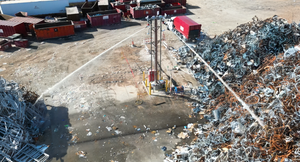Coalition Sues Over NYC Capacity Reductions in Waste Facility Volumes
The lawsuit challenges a city law that requires more than 20 transfer stations to cut the amount of waste they process.
A coalition of New York City businesses, the National Waste & Recycling Association (NWRA) and city residents filed a lawsuit on November 16 challenging a New York City law that requires more than 20 transfer stations located in Brooklyn, Queens and the Bronx to cut the amount of waste they process, far below what their state and city permits allow.
The petitioners include NYC transfer stations, NYC residents and the association representing the solid waste industry in NYC. Local Law 152 singles out certain transfer stations and requires reductions in their legally permitted capacity ranging from 33 to 50 percent.
According to NWRA, Local Law 152 hobbles the capacity of the New York solid waste industry to serve the public with safe, environmentally sound and economical garbage management. “The city ignored required environmental reviews in order to pass a law that does not improve the environment and in fact will increase traffic and air pollution,” said NWRA in a statement. “This arbitrary law will extinguish hundreds of jobs in low-income communities and imperil family-owned businesses that run transfer stations and small vendors and fuel suppliers that rely on them. The city also ignored New York State law governing solid waste management and disregarded the city’s own Solid Waste Management Plan.”
Over the last 10 years, NWRA and the coalition bringing this lawsuit tried to negotiate with the city to agree to lawful and fair reductions in transfer station volumes across the city, consistent with the city’s management plan. According to NWRA, the city ignored these efforts, as well as the advice from the City of New York Department of Sanitation and refused to negotiate.
“We do not take pleasure in taking legal action against New York City,” said Steve Changaris, director of the NYC Chapter of NWRA, in a statement. “Our member companies and this association have worked closely with city officials for decades to efficiently manage solid waste and keep New York City clean and healthy and we worked to avoid this litigation. Unfortunately, the city council and mayor have unfairly targeted our transfer stations for volume reductions that will harm our customers, our employees, our businesses and the city.”
About the Author
You May Also Like


.png?width=300&auto=webp&quality=80&disable=upscale)